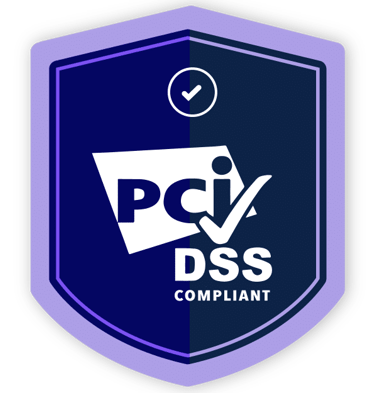Comprehensive Guide to Skilled Services in Home Health: What Home Health Agencies Need to Know
Skilled services in home health care, including nursing, physical therapy, and occupational therapy, are crucial for managing complex medical conditions and ensuring positive patient outcomes. Home health agencies must understand these services to provide high-quality, patient-centered care while remaining compliant with regulations and improving patient satisfaction.


When it comes to providing skilled care at home, a home health agency must deliver services that meet strict clinical and regulatory standards. Whether helping a patient recover, maintaining their current status, or slowing decline, home health services must be skilled, necessary, and well-documented. In this article, we’ll explore the essential components of home health services, including rehabilitative therapy, maintenance therapy, skilled nursing, and supportive services, all from the perspective of home health consulting best practices.
Rehabilitative Therapy in Home Health
In the world of home health, rehabilitative therapy is critical for patients who have the potential to improve with professional intervention. These services are covered when there is a reasonable expectation that the patient's condition can improve within a predictable period.
Home health agencies must ensure that therapy services—such as physical therapy, speech therapy, or occupational therapy—focus on restoring function and promoting independence. Proper documentation is crucial, demonstrating that the maximum level of improvement has not yet been achieved and that further recovery is anticipated.
At HealthBridge, a leader in home health consulting, we often advise agencies to focus on clear clinical goals that align with Medicare's standards for skilled rehabilitation in the home setting.
Maintenance Therapy: Preventing Further Decline
Maintenance therapy also plays an important role in home health care. Even when patients are not expected to make significant improvements, therapy services are covered if the skills of a licensed therapist are necessary to maintain current functional abilities or prevent deterioration.
Home health agencies must demonstrate that these services cannot be performed safely and effectively by the patient alone or by an unskilled caregiver. Skilled maintenance therapy is a core element of high-quality home health operations and must be carefully justified through documentation and outcome tracking.
Functional Assessment Requirements for Home Health Therapists
Before delivering therapy services, each qualified therapist—not a therapy assistant—must complete a functional assessment. This includes measuring key activities of daily living such as:
Eating and swallowing
Bathing and dressing
Walking and toileting
Climbing stairs
Using assistive devices
Assessing mental and cognitive abilities
For home health consulting purposes, we emphasize that therapists must document these assessments thoroughly, as they form the foundation for establishing medical necessity and setting appropriate care goals. If multiple therapy disciplines are involved, each therapist must conduct and document a separate functional evaluation aligned with the care plan.
Skilled Nursing Services in Home Health Agencies
Skilled nursing services are the cornerstone of many home health agency operations. Medicare covers skilled nursing when a patient requires specialized clinical judgment and the intervention of a registered nurse (RN) or a licensed vocational nurse (LVN), depending on state regulations.
Covered skilled nursing services in home health include:
Managing complex conditions
Preventing or slowing functional decline
Teaching patients and caregivers how to manage health conditions
Providing psychiatric nursing interventions
Monitoring and modifying the plan of care as necessary
Under CMS guidelines, skilled nursing must be intermittent, meaning it is provided fewer than seven days per week or fewer than eight hours per day, generally for up to three weeks unless complications arise.
In our home health consulting sessions, we stress the importance of properly documenting the medical predictability of skilled needs to meet Medicare's "intermittent" requirement.
Teaching, Psychotherapy, and Care Plan Management
Home health nurses also deliver essential teaching and training activities. Skilled teaching includes instructing patients and families on medication administration, wound care, chronic disease management, and more. These teaching visits are covered when they are critical to the patient's treatment plan.
For patients with psychiatric conditions, home health agencies may provide skilled psychiatric nursing, including evaluation, psychotherapy, and patient/family education. This specialized nursing support often requires collaboration with other disciplines, such as occupational therapy or medical social services.
Furthermore, skilled nursing management and evaluation of the patient’s care plan are covered when the complexity of services demands continuous oversight to ensure safe and effective treatment outcomes.
Home Health Aide Services: Supporting Skilled Care
Home health aides provide crucial hands-on personal care that supports skilled therapy or nursing services. Their tasks often include:
Bathing and grooming
Assisting with toileting
Helping with mobility and transfers
Monitoring the patient's general condition
Home health consulting experts emphasize that aide services must directly contribute to treating the patient's illness or injury, or assist in maintaining health. Agencies must ensure aides are properly certified and that their activities are clearly linked to the broader care plan.
Medical Social Services: Addressing Social and Emotional Barriers in Home Health
A qualified medical social worker can play a critical role in home health care by helping patients overcome social or emotional barriers that might hinder recovery. Medicare covers medical social services when:
The services are necessary for the patient's treatment or recovery
Only a licensed medical social worker (or supervised assistant) can provide them safely and effectively
Social workers often assist with counseling, accessing community resources, and coordinating care, especially for patients with complex psychosocial needs.
At HealthBridge, we encourage home health agencies to integrate medical social services into the patient care model when appropriate, supporting holistic recovery and compliance with Medicare standards.
Disclaimer: The content in this article is provided solely for general informational purposes and should not be interpreted as professional, legal, or financial guidance. No consultant-client relationship is formed by reviewing or interacting with this material. For specific advice or assistance, please seek the counsel of a licensed attorney, financial expert, or other appropriate professional. The consultant does not accept responsibility for any decisions made based on the information shared.
Links:
Medicare Benefit Policy Manual – Chapter 7: Home Health Services
42 CFR Part 484 – Home Health Conditions of Participation
42 CFR §409.42–409.49
CMS Home Health Agency (HHA) Center – General Regulatory & Policy Resources
Contact us for a Free Consultation
HealthBridge provides expert healthcare consulting for all agency types. Contact us to learn how we can support your compliance, operations, and growth.





